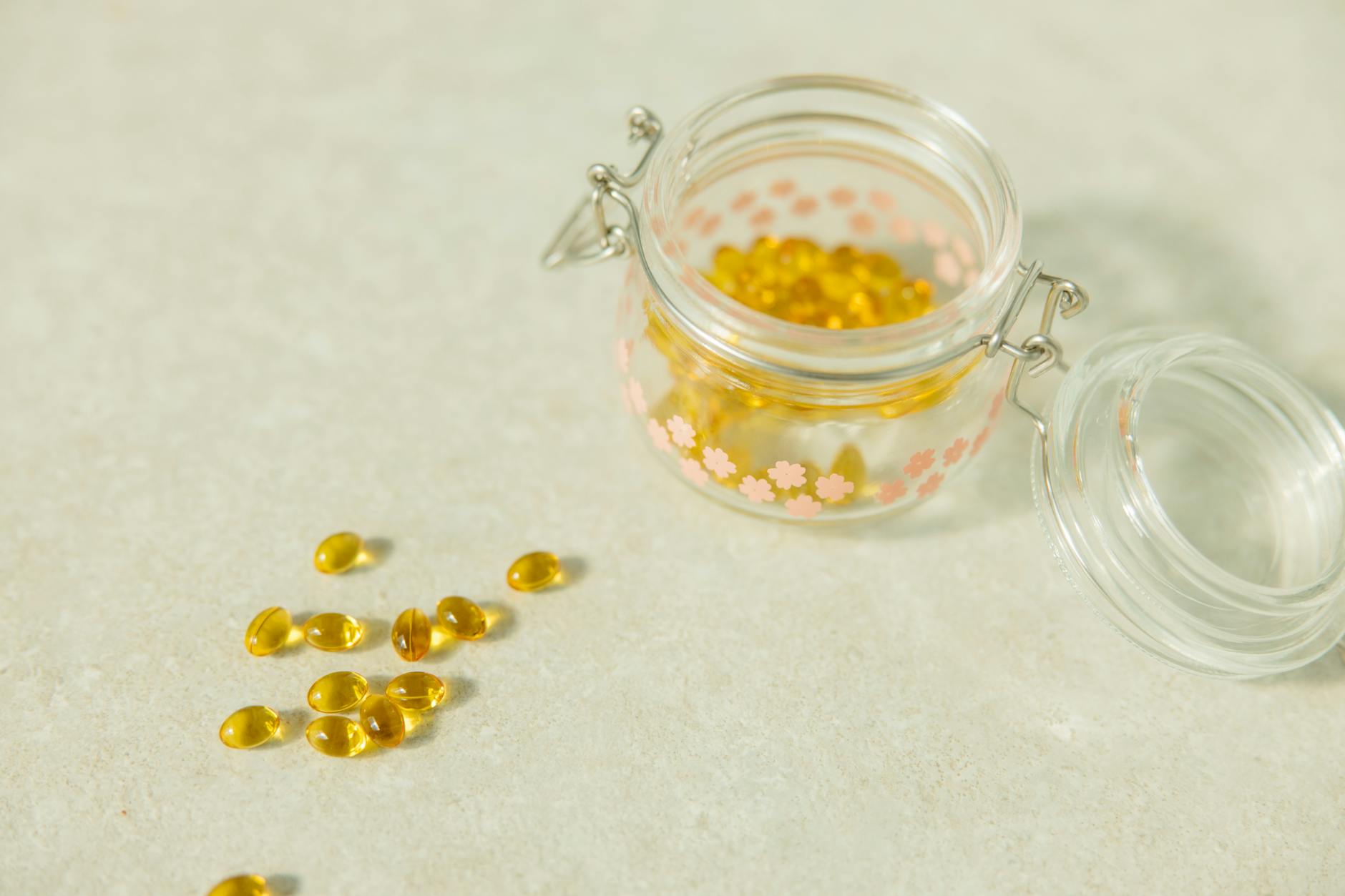
Are you tired of catching every cold and flu that comes your way? 🤒 Imagine a life where you rarely get sick, have boundless energy, and can confidently face any health challenge. It’s not a far-fetched dream – it’s entirely possible by boosting your immune system naturally.
Your immune system is your body’s first line of defense against harmful pathogens, but it needs your help to function at its best. In today’s fast-paced world, we often neglect the very things that keep our immune system strong. From poor diet choices to chronic stress and lack of sleep, our modern lifestyles can weaken our natural defenses. But fear not! There’s a solution that doesn’t involve expensive supplements or risky medications.
In this comprehensive guide, we’ll explore ten powerful strategies to supercharge your immune system naturally. From understanding how to increase your immune system naturally works to embracing immune-boosting foods and lifestyle habits, we’ll cover everything you need to know to build a robust defense against illness. Get ready to transform your health and discover the secrets to a stronger, more resilient you! 💪🍎
Understand the Immune System :

Key components of the immune system
The immune system is a complex network of cells, tissues, and organs working together to defend your body against harmful pathogens. Here are the key components:
- White Blood Cells (Leukocytes)
- Antibodies
- Complement System
- Lymphatic System
- Bone Marrow
- Thymus Gland
| Component | Function |
|---|---|
| White Blood Cells | Identify and destroy pathogens |
| Antibodies | Tag foreign invaders for destruction |
| Complement System | Enhances antibody effectiveness |
| Lymphatic System | Transports immune cells throughout the body |
| Bone Marrow | Produces immune cells |
| Thymus Gland | Matures T-cells |
How the immune system protects you
The immune system employs a multi-layered defense strategy to keep you healthy:
- Physical barriers (skin, mucous membranes)
- Innate immune response (immediate, non-specific)
- Adaptive immune response (specific, memory-based)
Signs of a weakened immune system
Watch for these indicators that your immune system may need support:
- Frequent infections
- Slow wound healing
- Persistent fatigue
- Digestive issues
- Autoimmune disorders
Understanding these components and processes is crucial for learning how to increase your immune system naturally. With this knowledge, we can now explore specific strategies to boost your immune health through diet and lifestyle changes.
Nourish Your Body with Immune-Boosting Foods :

Vitamin C-rich foods
Vitamin C is a powerful antioxidant that plays a crucial role in supporting the immune system. Incorporate these vitamin C-rich foods into your diet:
- Citrus fruits (oranges, lemons, grapefruits)
- Berries (strawberries, blueberries, raspberries)
- Kiwi
- Bell peppers
- Broccoli
- Brussels sprouts
Antioxidant-packed fruits and vegetables
Antioxidants help protect your cells from damage and boost your immune system. Include these colorful options in your meals:
| Fruit/Vegetable | Key Antioxidants |
|---|---|
| Berries | Anthocyanins |
| Leafy greens | Carotenoids |
| Tomatoes | Lycopene |
| Carrots | Beta-carotene |
| Sweet potatoes | Beta-carotene |
Probiotic-rich foods for gut health
A healthy gut is essential for a strong immune system. Consume these probiotic-rich foods:
- Yogurt
- Kefir
- Sauerkraut
- Kimchi
- Kombucha
Zinc-containing foods
Zinc is vital for immune cell development and function. Include these zinc-rich foods in your diet:
- Oysters
- Lean meats
- Poultry
- Beans
- Nuts and seeds
Herbs and spices with immune-enhancing properties
Enhance your meals with these immune-boosting herbs and spices:
- Garlic
- Ginger
- Turmeric
- Oregano
- Thyme
By incorporating these immune-boosting foods into your daily diet, you’ll provide your body with the essential nutrients it needs to maintain a strong and healthy immune system. Now that we’ve covered the importance of nutrition, let’s explore how proper sleep and rest can further enhance your immune function.
Prioritize Sleep and Rest :

Optimal sleep duration for immune function
Getting enough quality sleep is crucial for maintaining a robust immune system. Research suggests that adults should aim for 7-9 hours of sleep per night to support optimal immune function. During sleep, your body produces and releases cytokines, which are proteins that help fight infections and inflammation.
| Sleep Duration | Impact on Immune System |
|---|---|
| Less than 6 hours | Weakened immune response |
| 7-9 hours | Optimal immune function |
| More than 9 hours | Potential negative effects |
Creating a sleep-friendly environment
To enhance your sleep quality and duration, consider the following tips for creating an ideal sleep environment:
- Keep your bedroom dark, quiet, and cool (around 65°F or 18°C)
- Invest in a comfortable mattress and pillows
- Use blackout curtains or an eye mask to block out light
- Consider using white noise or earplugs to minimize disruptive sounds
- Remove electronic devices from the bedroom to reduce blue light exposure
Relaxation techniques for better sleep
Incorporating relaxation techniques into your bedtime routine can significantly improve your sleep quality. Try these methods to wind down before bed:
- Progressive muscle relaxation
- Deep breathing exercises
- Mindfulness meditation
- Gentle yoga or stretching
- Reading a calming book
By prioritizing sleep and implementing these strategies, you’ll be better equipped to support your immune system naturally. Next, we’ll explore how regular exercise can further boost your immune health.
Exercise Regularly for Immune Health :

Types of exercises that boost immunity
Regular exercise plays a crucial role in boosting your immune system naturally. Here are some types of exercises that can help strengthen your body’s defenses:
- Aerobic exercises:
- Brisk walking
- Jogging
- Swimming
- Cycling
- Dancing
- Strength training:
- Weightlifting
- Bodyweight exercises (push-ups, squats, lunges)
- Resistance band workouts
- Flexibility and balance exercises:
- Yoga
- Pilates
- Tai Chi
| Exercise Type | Immune System Benefits |
|---|---|
| Aerobic | Improves circulation, reduces inflammation |
| Strength | Boosts T-cell production, enhances overall immunity |
| Flexibility | Reduces stress, improves lymphatic flow |
Optimal exercise duration and frequency
To maximize the immune-boosting benefits of exercise, aim for:
- 150 minutes of moderate-intensity aerobic activity per week
- 75 minutes of vigorous-intensity aerobic activity per week
- 2-3 strength training sessions per week
Avoiding overtraining
While regular exercise is beneficial, overtraining can actually weaken your immune system. Signs of overtraining include:
- Persistent fatigue
- Decreased performance
- Frequent illnesses
To avoid overtraining, listen to your body and incorporate rest days into your routine. Now that we’ve covered the importance of exercise for immune health, let’s explore how managing stress can further enhance your body’s natural defenses.
Manage Stress Effectively :

Impact of stress on immune function
Chronic stress can significantly weaken your immune system, making you more susceptible to illnesses. When you’re stressed, your body produces cortisol, which can suppress the immune response. This hormonal imbalance can lead to:
- Increased inflammation
- Reduced production of white blood cells
- Decreased ability to fight off infections
| Stress Level | Impact on Immune Function |
|---|---|
| Low | Minimal impact |
| Moderate | Slight suppression |
| High | Significant suppression |
| Chronic | Severe weakening |
Stress-reduction techniques
Incorporating stress-reduction techniques into your daily routine can help boost your immune system naturally. Some effective methods include:
- Deep breathing exercises
- Progressive muscle relaxation
- Yoga or tai chi
- Regular physical activity
- Spending time in nature
- Engaging in hobbies or creative activities
Mindfulness and meditation practices
Mindfulness and meditation are powerful tools for managing stress and enhancing immune function. These practices can help reduce cortisol levels, improve sleep quality, and promote overall well-being. Consider incorporating the following into your routine:
- Daily mindfulness exercises (e.g., body scan, mindful eating)
- Guided meditation sessions
- Mindful breathing techniques
- Loving-kindness meditation
By actively managing stress through these techniques, you can support your immune system and improve your overall health. In the next section, we’ll explore the importance of staying hydrated for optimal immune function.
Stay Hydrated :

Importance of hydration for immune health
Staying hydrated is crucial for maintaining a robust immune system. Water plays a vital role in transporting nutrients throughout the body, flushing out toxins, and supporting cellular functions essential for immune health. Proper hydration helps maintain the mucus membranes in your respiratory tract, creating a barrier against pathogens.
Recommended daily water intake
The ideal water intake varies depending on factors such as age, gender, activity level, and climate. Here’s a general guideline:
| Gender | Recommended daily intake |
|---|---|
| Adult men | 3.7 liters (15.5 cups) |
| Adult women | 2.7 liters (11.5 cups) |
Remember, these amounts include water from all sources, including food and other beverages.
Hydrating foods and beverages
While water is the best choice for hydration, you can also increase your fluid intake through:
- Herbal teas
- Fresh fruits and vegetables (e.g., watermelon, cucumber, oranges)
- Coconut water
- Bone broth
To boost your immune system naturally, incorporate these hydrating options into your daily routine:
- Start your day with a glass of water
- Carry a reusable water bottle
- Set reminders to drink water throughout the day
- Eat water-rich fruits and vegetables as snacks
Now that you understand the importance of hydration for immune health, let’s explore how managing stress effectively can further support your immune system.
Practice Good Hygiene :

Proper handwashing techniques
Proper handwashing is a cornerstone of good hygiene and a powerful tool for boosting your immune system naturally. Here’s a step-by-step guide to effective handwashing:
- Wet hands with clean, running water
- Apply soap and lather thoroughly
- Scrub for at least 20 seconds, including:
- Palms
- Back of hands
- Between fingers
- Under nails
- Rinse well under running water
- Dry with a clean towel or air dry
Remember, the key is to wash your hands frequently, especially:
- Before and after preparing food
- Before eating
- After using the bathroom
- After coughing, sneezing, or blowing your nose
Importance of personal hygiene
Personal hygiene goes beyond handwashing and plays a crucial role in maintaining a strong immune system. Here’s a comparison of good vs. poor hygiene practices:
| Good Hygiene Practices | Poor Hygiene Practices |
|---|---|
| Daily showers/baths | Infrequent bathing |
| Regular teeth brushing | Neglecting oral care |
| Clean clothes daily | Wearing dirty clothes |
| Trimmed nails | Long, dirty nails |
Keeping your environment clean
A clean environment is essential for immune health. Focus on:
- Regular dusting and vacuuming
- Disinfecting high-touch surfaces (doorknobs, light switches)
- Washing bedding weekly
- Proper food storage and kitchen cleanliness
By maintaining good hygiene practices, you create a barrier against harmful pathogens, effectively supporting your immune system’s natural defenses.
Embrace Natural Supplements :

Vitamin D supplementation
Vitamin D plays a crucial role in supporting our immune system. While sunlight is the best natural source, many people are deficient due to limited sun exposure or geographical location. Supplementation can help bridge this gap.
| Vitamin D Source | Pros | Cons |
|---|---|---|
| Sunlight | Free, natural | Weather-dependent, skin cancer risk |
| Diet | Naturally occurring | Limited food sources |
| Supplements | Consistent dosage | Potential for overconsumption |
Echinacea and its benefits
Echinacea is a popular herb known for its immune-boosting properties. It may help:
- Reduce the duration and severity of colds
- Stimulate the production of white blood cells
- Enhance the body’s natural defense mechanisms
Elderberry for immune support
Elderberry has gained recognition for its potential to support immune health. Some benefits include:
- Rich in antioxidants
- May reduce the severity and duration of flu symptoms
- Supports overall immune function
Importance of consulting a healthcare professional
Before incorporating any new supplements into your routine:
- Consult with a healthcare provider
- Discuss potential interactions with existing medications
- Determine appropriate dosages for your individual needs
- Consider any underlying health conditions
Remember, while natural supplements can be beneficial, they should complement, not replace, a healthy lifestyle. With this foundation of natural immune support, let’s explore how limiting harmful habits can further enhance your immune system.
Limit Harmful Habits :

Reducing alcohol consumption
Excessive alcohol consumption can significantly weaken your immune system, making you more susceptible to infections and diseases. To boost your immune health, consider the following strategies to reduce alcohol intake:
- Set weekly limits and stick to them
- Alternate alcoholic drinks with water or non-alcoholic beverages
- Choose lower alcohol content options
- Avoid keeping alcohol at home
| Alcohol Type | Standard Drink Size | Alcohol Content |
|---|---|---|
| Beer | 12 oz (355 ml) | 5% |
| Wine | 5 oz (148 ml) | 12% |
| Spirits | 1.5 oz (44 ml) | 40% |
Quitting smoking
Smoking is detrimental to your overall health, including your immune system. Quitting smoking can lead to significant improvements in your body’s ability to fight off infections. Here are some tips to help you quit:
- Set a quit date and inform friends and family for support
- Use nicotine replacement therapy or prescription medications
- Join a support group or seek counseling
- Practice stress-reduction techniques like meditation or deep breathing
Avoiding excessive sugar intake
High sugar consumption can suppress your immune system and increase inflammation in the body. To reduce sugar intake and boost your immune health:
- Read nutrition labels carefully
- Choose whole fruits over fruit juices
- Opt for unsweetened beverages
- Cook more meals at home to control sugar content
By limiting these harmful habits, you’ll be taking significant steps towards naturally increasing your immune system’s strength and resilience. Next, we’ll explore the importance of social connections in maintaining a robust immune system.
Cultivate Social Connections :
The link between social support and immune health
Research has shown a strong correlation between social support and immune health. Individuals with robust social networks tend to have stronger immune systems, lower stress levels, and better overall health outcomes. This connection is attributed to various factors:
- Reduced stress levels
- Increased feel-good hormones
- Better health behaviors
- Enhanced emotional support
| Social Support Factor | Impact on Immune Health |
|---|---|
| Regular social interactions | Boosts production of antibodies |
| Emotional support | Reduces chronic inflammation |
| Sense of belonging | Enhances T-cell function |
| Shared health information | Improves overall health behaviors |
Safe ways to maintain social connections
In today’s world, maintaining social connections while prioritizing health is crucial. Here are some safe ways to stay connected:
- Virtual meetups and video calls
- Outdoor activities with proper distancing
- Online support groups or clubs
- Regular check-ins with friends and family
- Socially distanced gatherings in well-ventilated spaces
Benefits of laughter and positive emotions
Laughter and positive emotions play a significant role in boosting immune function. The benefits include:
- Increased production of immune cells and antibodies
- Reduced stress hormones
- Improved blood flow and oxygenation
- Enhanced mood and mental health
Incorporating humor and positivity into daily life can be achieved through:
- Watching comedies or funny videos
- Sharing jokes with friends
- Engaging in playful activities
- Practicing gratitude and mindfulness
By cultivating social connections and embracing laughter, you can naturally enhance your immune system and overall well-being. These practices not only contribute to better physical health but also improve mental and emotional resilience, creating a holistic approach to immune support.
Boosting your immune system naturally is a holistic endeavor that encompasses various aspects of your lifestyle. By incorporating immune-boosting foods, prioritizing sleep, exercising regularly, managing stress, staying hydrated, and maintaining good hygiene, you can significantly enhance your body’s natural defense mechanisms. Additionally, embracing natural supplements, limiting harmful habits, and fostering social connections contribute to overall immune health.
Remember, a strong immune system is your best defense against illnesses and infections. By implementing these strategies consistently, you can create a robust foundation for long-term health and well-being. Start small, make gradual changes, and watch as your body becomes more resilient and better equipped to face daily challenges. Your immune system is a powerful ally – nurture it, and it will protect you in return.













